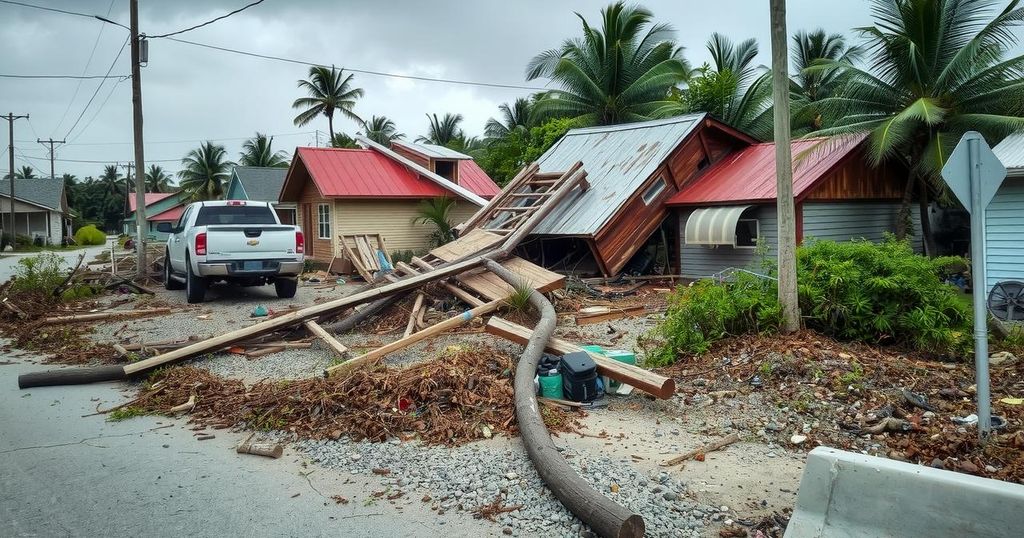Cyclone Chido has devastated Mayotte, resulting in at least 11 fatalities and extensive injuries. The storm has been deemed the worst in 90 years, with ongoing fears of rising casualties. Additionally, the cyclone’s impact extends to surrounding regions, prompting concerns about flooding in Mozambique and other neighboring areas.
Cyclone Chido has wreaked havoc in Mayotte, a French territory in the Indian Ocean, resulting in at least 11 confirmed fatalities and extensive damage as reported by France’s Interior Ministry. Reports indicate that the cyclone, which struck with winds exceeding 220 kph, left a significant number of residents in peril, with nine individuals in critical condition and over 246 others sustaining injuries. The cyclone impacted the broader region, including the Comoros and Madagascar islands, where reports of destruction have emerged. The event is being characterized as the worst cyclone to strike Mayotte in nearly a century, and with damage widespread, authorities are apprehensive that the number of casualties may rise further as assessments continue.
Cyclone Chido is the latest in a series of significant tropical cyclones that have affected the southeastern Indian Ocean region, contributing to a pattern of increasingly severe weather phenomena. Mayotte, known as France’s poorest island, has previously faced challenges regarding infrastructure resilience, exacerbated by underinvestment and adverse weather conditions such as drought. The region’s vulnerability was further highlighted as Chido also impacted surrounding islands and is now advancing toward mainland Mozambique, where emergency preparedness measures are being implemented in anticipation of flooding and other damages.
In summary, Cyclone Chido has inflicted severe damage in Mayotte, leading to loss of life and a reported number of serious injuries. Its high winds and destructive force have resulted in catastrophic infrastructure damage and raised concerns for further casualties. The cyclone’s progression towards Mozambique suggests that adverse effects will continue in the broader Indian Ocean region, necessitating urgent humanitarian responses and preparedness measures in the affected areas.
Original Source: www.business-standard.com







